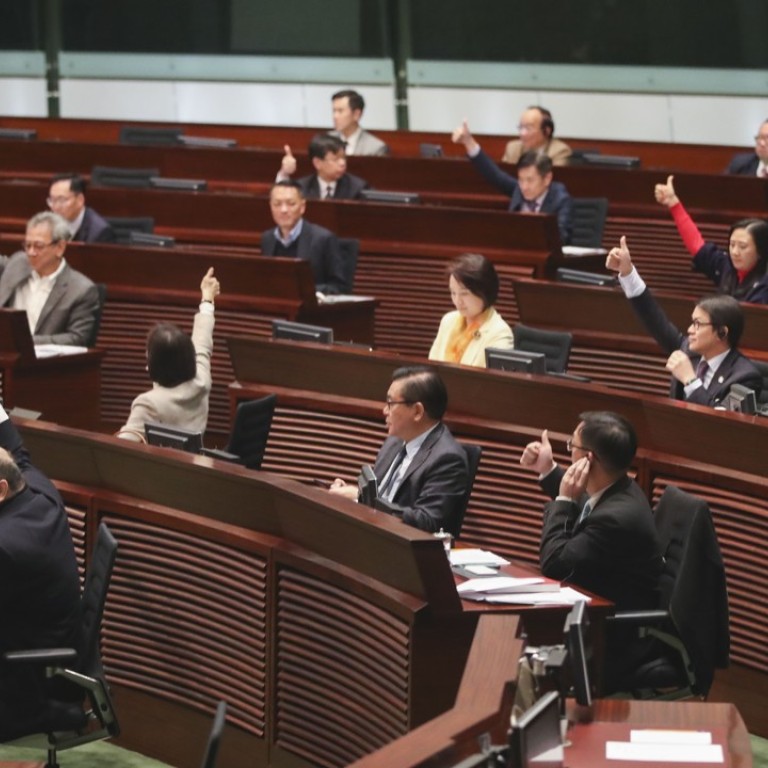
Cooperation should be the rule in Legco
Changes by the pro-government camp to the way business is carried out following opposition tactics have brought more uncertainty, and a truce between both sides is the best way forward
It is regrettable that the curbs on filibustering in the Legislative Council have brought even more uncertainty. After weeks of bitter wrangling, the pro-government camp has successfully amended the house rules to prevent the opposition from dragging out the council’s business with meaningless antics. But the way forward is far from clear. The opposition is understandably outraged and has vowed to “pay back hundredfold”, presumably meaning more disruptive tactics will follow. Looming on the horizon is a court challenge against the legality of the amendments. Rewriting the rules of the game is a step not to be taken lightly. Inherited from the colonial legislature, the Legco rules of procedure have proved to be an effective tool until recent years when a few rebel lawmakers used them to block or drag out key funding and legislative proposals in the hope of pressuring the government into certain policy commitments. But it gradually degenerated into abuse that did nothing more than hamper efficiency and governance.
There are those who applauded the amendments. A recent survey showed that about half of respondents agreed there should be less filibustering. But some 30 per cent were opposed to changing the rule book. While they do not necessarily endorse filibustering, they may not agree with the approach of the pro-government camp. The changes would not have been bulldozed through had six opposition lawmakers not been disqualified for the improper taking of oaths. There are doubts whether a reduced quorum is consistent with the Basic Law. The move to raise the threshold for inquiry, a tactic increasingly used by the opposition to investigate issues of public interest, has also been seen by some as castrating Legco’s own constitutional power. The government and its allies must have assessed the risk before taking such a step, but the stakes have been raised so high that it may create a backlash. Officials can no longer put the blame on filibustering in the event of policy mishaps. There may even be a backlash if the pro-government camp abuses its dominance in the Legco process.
Hostility and animosity are expected to prevail, but there is every reason for the opposition to exercise restraint. If public disapproval of filibustering is growing, it is because some members went too far in the past. The growing sense of political fatigue means any radical step may just backfire. Difficult as it seems, it would do well for different sides to try to put aside their differences and rebuild common ground. Hopefully, a truce would not take long to come. Restoring order and efficiency is just the means. The changes will be meaningless unless they translate into better livelihoods for the people. Only through cooperation will the stalemate turn into a win-win situation.

